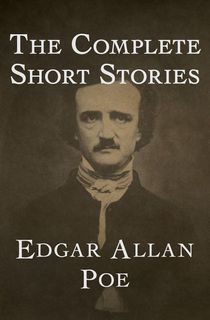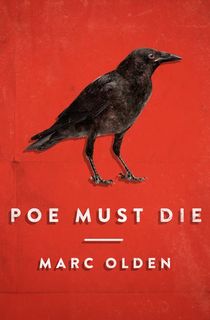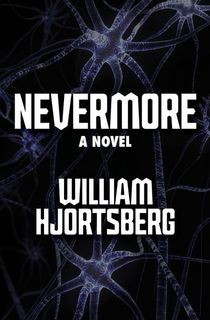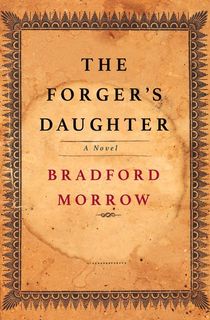For a man who died in 1849 at the age of 40 and wrote only three detective stories—The Murders in the Rue Morgue, The Case of Marie Roget, and The Purloined Letter—Edgar Allan Poe exerts a giant influence over mystery writing, and has done so for well over a century.
“Where was the detective story until Poe breathed life into it?” Sir Arthur Conan Doyle asked rhetorically. Conan Doyle was a great admirer of the American writer and undoubtedly based his famous creation Sherlock Holmes on Poe’s pipe-smoking, logical, and reticent gentleman sleuth C. Auguste Dupin. Dr. Watson even references the Parisian detective when he first meets Holmes in A Study in Scarlet: “You remind me of Edgar Allan Poe’s Dupin. I had no idea such individuals did exist outside of stories.”
Conan Doyle was not the only great English crime writer to be inspired by Poe. Dame Agatha Christie took Dupin as one of her models when she began working on her 1920 debut novel The Mysterious Affair at Styles, which introduced dapper Belgian investigator Hercule Poirot to the world. Christie acknowledged her debt in a later novel, Third Girl, which reveals that Poirot has spent his time between cases writing a biography of…Edgar Allan Poe.
For a long while after his death, Poe’s reputation in Europe had been greater than it was in the U.S., but that changed with the arrival of pulp fiction magazines in the 1920s. By the 1970s, the author was firmly established as the godfather of genre writing—whether it was horror, science fiction, or detective fiction. That the cause of Poe’s death and the circumstances surrounding it remain mysterious has proved an added bonus for novelists.
Poe’s own debut as a character in mystery fiction dates back to 1950. He appeared as a Dupin-esque crime-fighter in The Gentleman from Paris, a short story by John Dickson Carr, an Edgar Award-winning author best known for the Dr. Gideon Fell novels.
In the 1960s, British writer Michael Harrison, who’d made a name for himself writing nonfiction books about the world of Sherlock Holmes, turned his attention to Edgar Allan Poe and wrote a series of short stories featuring C. Auguste Dupin. A collection of eight of these stories—with a foreword by Ellery Queen—was published as The Exploits of the Chevalier Dupin in 1968.
In Manny Meyer’s 1978 novel The Last Mystery of Edgar Allan Poe: The Troy Dossier, the author helps detectives in New York City solve a pair of murders. Poe also turns detective in Louis Bayard’s The Pale Blue Eye, which draws on the writer’s brief spell at West Point Academy in 1830 (he was expelled after a court-martial in 1831). When a cadet is found murdered, the authorities call in retired detective Augustus Landor, who quickly finds himself drawing on the expertise of the frequently drunk young Poe.
Related: 12 Books for Sherlock Holmes Fans
Andrew Taylor’s The American Boy (also known as An Unpardonable Crime) also makes use of a lesser-known period in Poe’s youth: his time spent in London attending school in Stoke Newington and living with foster parents. Taylor’s novel sees Poe, a school friend, and a young teacher visit a pleasingly Gothic and creepy house in the English countryside. Dark deeds unfold there and one of the protagonists suffers that most Poe-like of all fates: being buried alive.
Marc Olden’s darkly comic caper Poe Must Die is set in New York in 1847. A gin-sodden Poe is trying to come to terms with the premature death from tuberculosis of his beloved wife, Virginia. Half-mad and heading for an early grave, the writer is rescued by the arrival of an English bare-knuckle prize-fighter named Figge, who comes bearing a letter from Charles Dickens that warns of a diabolical plot against humanity. Soon Poe and Figge are battling the world’s greatest psychic with the fate of the world resting on their shoulders.
Stephen Marlowe’s The Lighthouse at the End of the World spins off from Poe’s mysterious disappearance in Baltimore for five days shortly before his death. It’s a complex novel that shifts between parallel universes and sees Poe and Dupin investigating the death of Poe’s brother—or is it Poe himself?
A similar scenario, albeit told in a more conventional way, is the focus of The Poe Shadow. In Matthew Pearl’s excellent mystery, a young lawyer acquaintance of Poe’s, Quentin Hobson Clark, seeks the help of brilliant Parisian sleuth C. Auguste Dupin. Together, they investigate the circumstances of Poe’s death and possible suspects, including the real-life people who attended his small funeral.
Related: 9 Perplexing Locked Room Mysteries for the Sleuth at Heart
Author Joel Rose takes a different angle in The Blackest Bird. Set in 1841, his novel sees the drunk, erratic, womanizing Poe arrested as a suspect in the sensational real-life murder of a beautiful cigar shop worker, Mary Rogers, whose corpse was found floating in the Hudson River. Poe used the case as the basis for the Dupin story The Mystery of Marie Roget. But The Blackest Bird asks: what if he was somehow involved, however loosely, in the brutal slaying of the young woman who had drawn a crowd of male admirers?
Poe crops up in mystery books in other less direct ways, too. In William Hjortsberg’s pleasantly grisly Nevermore, Harry Houdini and Sir Arthur Conan Doyle (close friends in real life, before they fell out over various spiritualists) investigate a series of horrific murders, each of which is inspired by one of Poe’s tales.
It’s a first edition Poe book, Tamerlane and Other Poems, published in 1827 and one of the rarest in American literature, which forms the centerpiece of Braford Morrow’s brilliantly plotted The Forger’s Daughter. In a grey and distinctly Gothic Manhattan, retired literary forger Will is compelled by a dark figure from his past to make a perfect copy of the original.
The Forger’s Daughter is not only a great suspense tale and exploration of the world of literary forgeries, but also a tribute to the genius of Poe himself. As Sir Arthur Conan Doyle observed, our world—especially the world of detective fiction—would not have been the same without him.




